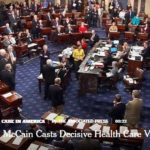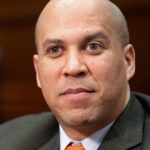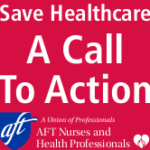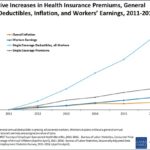Hospital Reimbursements and the ACA
One goal of the Affordable Care Act (ACA) is to reduce costs by forcing hospitals to provide quality care more efficiently. The following provisions from the ACA directly impact the reimbursements that hospitals receive for providing care to patients:
- 2008 – “Never Events”
- 2011 – Market Basket Adjustment
- 2012 – High 30-Day Readmission Rates for AMI, heart failure, pneumonia.
- 2012 – Value Based Purchasing
- 2014 – Disproportionate Share payments cut.
- 2015 – Hospital Acquired Infections – top quartile.
Never Events – As of 2008 the Centers for Medicare and Medicaid Services (CMS) no longer reimbursed a hospital for procedures which resulted in a “never event.” A “never event” is an error that should never occur in a health care setting, such as surgery on the wrong patient or the wrong body part.
Market Basket Adjustment: The ACA reduces market basket updates for inpatient and outpatient hospital services, as well as for Inpatient Psychiatric Facilities (IPF’s), Inpatient Rehabilitation Facilities (IRF’s) and Long Term Care Hospitals (LTCH’s). Market basket reductions are estimated to save an estimated $112 billion over 10 years. These reductions are retroactive to January 1, 2010, and extend for a period of 10 years, and beyond.
30-Day Hospital Readmission Rates: Medicare will reduce payments to hospitals for potentially preventable readmissions for select conditions. Hospital readmission rates for these conditions will be published on the Center for Medicare/Medicaid Services’ Hospital Compare Web site.
Hospital Value-based Purchasing program: Medicare will reward hospitals that provide higher quality or better patient outcomes. Under the Program, CMS will make value-based incentive payments to acute care hospitals, based either on how well the hospitals perform on certain quality measures or how much the hospitals’ performance improves on certain quality measures from their performance during a baseline period. The higher a hospital’s performance or improvement during the performance period for a fiscal year, the higher the hospital’s value-based incentive payment for the fiscal year would be.
Disproportionate Share Payment (DSH): Under the ACA, Medicaid DSH payments will be reduced by $14.1 billion from FY 2014 through 2019, and Medicare DSH payments would be reduced by $22.1 billion from FY 2014 to 2019. In July 2013, CMS lproposed reducing Medicare DSH spending by $1 billion in FY 2014, as part of its inpatient prospective payment system regulation for FY 2014. The agency has also proposed a methodology for reducing federal Medicaid DSH allotments to states by the ACA-mandated levels of $500 million in FY 2014 and $600 million in FY 2015. (Source: http://www.ahanews.com/ahanews/jsp/display.jsp?dcrpath=AHANEWS/AHANewsArticle/data/AHA_News_051713_dsh)
Hospital Acquired Infections: In 2015, hospitals will face an additional 1% reduction in Medicare reimbursement payments if they fall into the top 25% of national risk-adjusted Hospital Acquired Conditions rates for all hospitals in the previous year.
News
Advocates want top court to review massive Horizon reorganization
State’s biggest health insurance company says it must restructure to compete, but critics warn coverage for 2M residents could be imperiled
Health Insurance Marketplace Open Enrollment Is Here – Ends on Dec 15th!
As healthcare professionals we are acutely aware of the need for health insurance coverage. The ACA marketplace is now open!
Senate Rejects Slimmed-Down Obamacare Repeal as McCain Votes No
The Senate in the early hours of Friday morning rejected a new, scaled-down Republican plan to repeal parts of the ACA, derailing the Republicans’ 7 year campaign to dismantle Barack Obama’s signature health care law and dealing a huge political setback to
HPAE Health Professionals Speak Out to Protect our Health Care
Four HPAE members speak out on why the bills to replace the Affordable Care Act (ACA) would be so harmful to our patients.
Some GOP Congress Members Could Pay Politically For ACA Repeal Vote
Nunes and the 13 other Republican members of Congress from California voted for the House measure, called the American Health Care Act — even though some had suggested earlier that they would oppose it. The bill was unanimously opposed by
Statement by HPAE President Ann Twomey in Response to the passage of the American Health Care Act
After months of protest and outrage, Congress dismissed pleas from their constituents, patients and working families by passing legislation to take away healthcare from millions of Americans by dismantling the ACA.
MacArthur Amendment to American Health Care Act Would Cause Even More Harm to New Jersey
Rep. Tom MacArthur of New Jersey’s 3rd Congressional District has now resurrected the bill with a new amendment that retains all the worst elements of the original plan to repeal and replace the Affordable Care Act.
In Major Defeat for Trump, Push to Repeal Health Law Fails
House Republican leaders, facing a revolt among conservatives and moderates in their ranks, pulled legislation to repeal the Affordable Care Act from consideration on the House floor Friday in a major defeat for President Trump on the first legislative showdown
AFT Analysis of Trumpcare: NJ Would Have 800,000 Less with Health Insurance, Lose $5 Billion in Funding
An analysis by the American Federation of Teachers of the House Republican/Trump plan to replace and repeal the Affordable Care Act reveals that the plan will cause 800,000 New Jerseyans to lose health insurance.
Poor, Elderly in NJ Stand to Be Hardest Hit Under GOP Healthcare Plan
The lowest-income New Jerseyans of all ages, and most of those 60 and older, regardless of income, would be the biggest losers under the Republican plan to amend the Affordable Care Act, according to a nonpartisan analysis of the issue.
Republican Plan to Revise ACA Would Reduce Insured Numbers by 24 Million, CBO Projects
House Republicans’ proposal to rewrite federal health-care law would more than reverse the gains the Affordable Care Act has made in the number of Americans with health insurance.
Why the “Repeal and Replace” Plan Means More Uninsured, Higher Costs
Congressional Republicans have unveiled legislation to "repeal and replace" the Affordable Care Act (ACA). The American Healthcare Act (AHCA) will cause millions of people to lose their insurance and raise healthcare costs for working people and seniors.
HPAE Statement on the Republican Plan to Repeal the ACA
HPAE President Ann Twomey responded today to the Congressional Republican plan to repeal the Affordable Care Act. This plan will take away health coverage for millions of patients, while providing large tax cuts for the very wealthy and pharmaceutical and
Repeal of Health Law Faces a New Hurdle: Older Americans
Republican plans to repeal the Affordable Care Act have encountered a new obstacle: adamant opposition from many older Americans whose health insurance premiums would increase.
Leaked GOP Obamacare replacement shrinks subsidies, Medicaid expansion
A draft House Republican repeal bill would dismantle the Obamacare subsidies and scrap its Medicaid expansion, according to a copy of the proposal obtained by POLITICO.
Hundreds Rally in Philly to Save Our Healthcare
Hundreds of concerned citizens came to a rally in Philadelphia on Saturday to defend the gains we've made in providing healthcare benefits to millions of previously uninsured Americans through the Affordable Care Act (ACA).
ACA Repeal Would Impact 1M NJ Residents, Saddle State With $4B Annually
Repealing the federal Affordable Care Act would have a direct impact on more than 1 million New Jersey residents — and could even kill nearly 800 of them over the next 12 years.
Philly Mayor Hosts Forum on Saving the ACA
Philadelphia Mayor Jim Kenney hosted a forum at the Community Health and Literacy Center to support preserving the Affordable Care Act in Philadelphia and across the country.
How Would Repealing the Affordable Care Act Affect Health Care and Jobs in your State?
Across the country, 29.8 million people would lose their health insurance if the Affordable Care Act were repealed—more than doubling the number of people without health insurance.
Booker: Repealing ACA would be catastrophic to N.J. families
In a joint Star-Ledger op-ed with HPAE President Ann Twomey, U.S. Senator Cory Booker emphasized that the repeal of the Affordable Care Act would have devastating consequences for Americans.
Protesters in Philly Slam Plans to Repeal Obamacare
Over a thousand people, including HPAE members, staff, and supporters, rallied in Philadelphia today to protest the plans of the Republican Congress and President Trump to repeal the Affordable Care Act.
HPAE Joins Day of Action Rallies to Protect Our Health Care
HPAE members, leaders, and staff participated at rallies in Camden, Newark, and Philadelphia today to demand that the Affordable Care Act (ACA) not be repealed and that millions of people maintain essential health care coverage.
Nurses, Health Professionals Take a Stand to Protect Healthcare on January 15, Day of Action
Throughout New Jersey, HPAE, the state’s largest union of healthcare workers is standing with US Senate and Congressional Leader to say Don’t Make America Sick Again.
January 15 is the National Day of Action to Support Healthcare
On Sunday, Jan. 15, nurses and healthcare professionals in the American Federation of Teachers are joining with our community, faith-based and labor partners to launch a campaign to stand against this reckless attack on our nation’s health.
Obama Health Law Posts Solid Sign-Ups Despite GOP Repeal Vow
Congress may be moving to repeal "Obamacare," but millions of people are still signing up. The administration said Tuesday that 11.5 million enrolled nationwide through Dec. 24, ahead of last year's pace.
Health Exchange Enrollment Jumps, Even as G.O.P. Pledges Repeal
About 6.4 million people have signed up for health insurance next year under the ACA, the Obama administration said Wednesday, as people rushed to purchase plans regardless of Republican promises that the law will be repealed within months.
Repeal of ACA Could Hurt NJ’s Patients, Health, and Economy
If President-elect Donald Trump succeeds in repealing the Affordable Care Act, one in 10 adults in New Jersey would likely lose their newly acquired coverage.
Repealing the Medicaid Expansion Would Reverse Health Coverage Gains & Deepen New Jersey’s Financial Crisis
President-elect Donald Trump’s proposal to repeal the Medicaid expansion as part of rolling back most of the Affordable Care Act (ACA) would harm New Jersey far more than most other states.
Why Keeping Only the Popular Parts of Obamacare Won’t Work
Before Obamacare, it could be hard to buy your own insurance if you’d already had a health problem like cancer. An insurance company might have decided not to sell any insurance to someone like you.
The Affordable Care Act’s Little-Noticed Success: Cutting the Uninsured Rate
The uninsured rate for non-elderly Americans has fallen from about 16.6% in 2013 to 10% in the first quarter of 2016, and 8.6% taking into account seniors who have near universal coverage.
Ailing Obama Health Care Act May Have to Change to Survive
Seeing a lack of competition in many of the health law’s online insurance marketplaces, Hillary Clinton, President Obama and much of the Democratic Party are calling for more government, not less.
Modest Rise in 2015 Premium Increases, But Large Deductible Hikes
Annual family premiums for employer-sponsored health insurance rose an average of 3 percent to $18,142 this year.
NJ Doctors Got $56M In Gifts, Fees From Drug And Device Makers
Under the Affordable Care Act (ACA), drug makers now have to report gifts and fees to doctors and hospitals.
Obama Renews Call For A Public Option In Health Law
President Barack Obama Monday called on Congress to revisit the controversial idea of providing a government-run insurance plan as part of the offerings under the Affordable Care Act.
Newest Policyholders Under Health Law Are Sicker and Costlier to Insurers
People newly insured under the Affordable Care Act were sicker, used more medical care and had higher medical costs than those who already had coverage, the Blue Cross and Blue Shield Association said Tuesday in a new study of its
Three Changes Consumers Can Expect In Next Year’s Obamacare Coverage
From KHN: Kaiser Health News Health insurance isn’t simple. Neither are government regulations. Put the two together and things can get confusing fast. So it’s not surprising that federal regulators took a stab at making things a bit more straightforward
Sanders’ Health Plan Renews Debate On Universal Coverage
From National Public Radio (NPR), February 23, 2016 When Vermont Sen. Bernie Sanders stumps for health care for everyone, it always gets huge applause. “I believe that the U.S. should do what every other major country on Earth is doing,”
Thats all, folks - no more news!
Resources
- New Jersey Resource Guide to Open Enrollment for the ACA
- Comparison of the ACA & the Republican "Repeal and Replace" Bills
- The Economic and Employment Consequences of Repealing Federal Health Reform: A 50 State Analysis
- Summary of Affordable Care Act
- ACOs and New Patient Care Delivery Systems
- Hospital Reimbursements and the ACA
- Medicaid Expansion under the ACA
Upcoming Events
No upcoming events at this time.




































